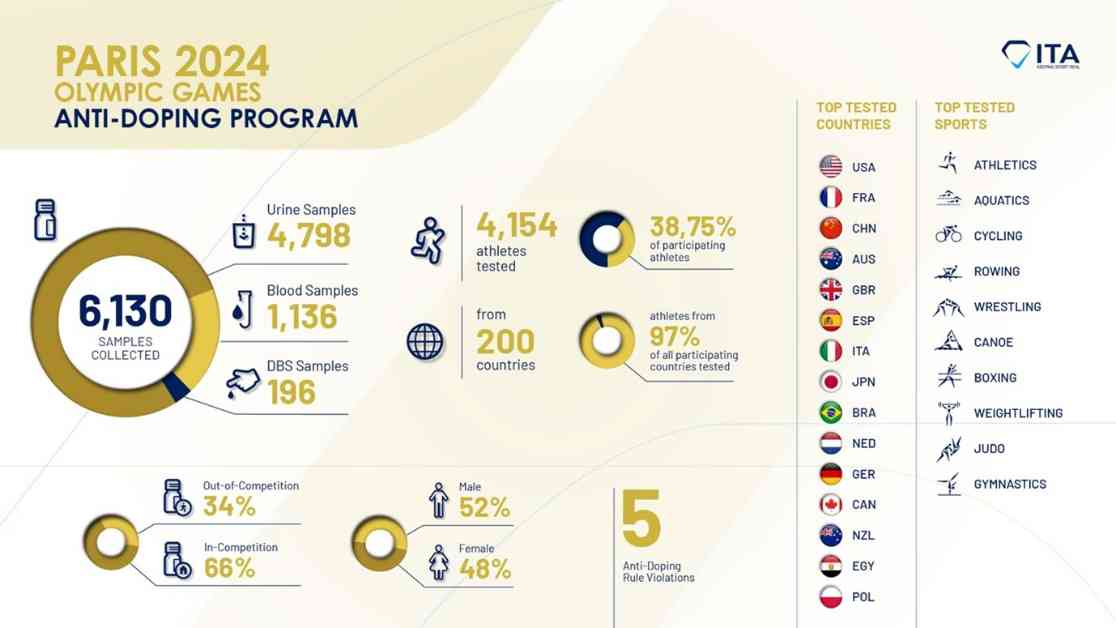The ITA recently concluded its anti-doping program for the Paris 2024 Olympics, with a record number of athletes being tested. Over 6,000 samples were collected from more than 4,700 doping controls, and nearly 39% of participating athletes were tested at least once. This marks a significant increase compared to previous Olympic Games.
The anti-doping efforts focused on targeted testing based on risk assessments, performance data, and available intelligence. The majority of tests were conducted in-competition, with a smaller portion carried out out-of-competition. Athletes from various sports and countries were included in the testing program, encompassing a wide range of nationalities.
Leading up to the Games, an extensive pre-Games testing program was implemented, resulting in nearly 90% of athletes being tested at least once before the start of the Olympics. This proactive approach aimed to create a robust anti-doping framework for the event.
The ITA’s testing strategy was based on a thorough risk assessment that considered various factors, including the specific nature of each sport, athlete data, and country-specific risk levels. The program also benefited from input from experts and intelligence gathered through various channels.
Five anti-doping rule violations have been identified based on the samples collected during the Paris 2024 Games. The ITA has taken swift action, suspending athletes involved and passing their cases on for further adjudication. The testing analysis conducted by the WADA-accredited laboratory in Paris has been completed.
Throughout the Games, the ITA worked closely with the Organising Committee Paris 2024 and the national anti-doping organization AFLD to ensure the success of the anti-doping program. The efforts involved a large team of anti-doping experts, chaperones, and volunteers who played a crucial role in executing the testing operations.
Innovations introduced for the Tokyo 2020 Games were further refined for Paris 2024, including a paperless administration system and advanced testing methods such as DBS and gene doping testing. All samples collected during the event will be stored for up to ten years for potential re-analysis in the future.
Looking ahead, the ITA remains committed to enhancing its anti-doping programs for future Olympic Games, including Milano-Cortina 2026 and LA28. The organization aims to continue promoting clean sports and ensuring a level playing field for all athletes. The success of the Paris 2024 anti-doping program sets a strong foundation for future efforts in this critical area.
